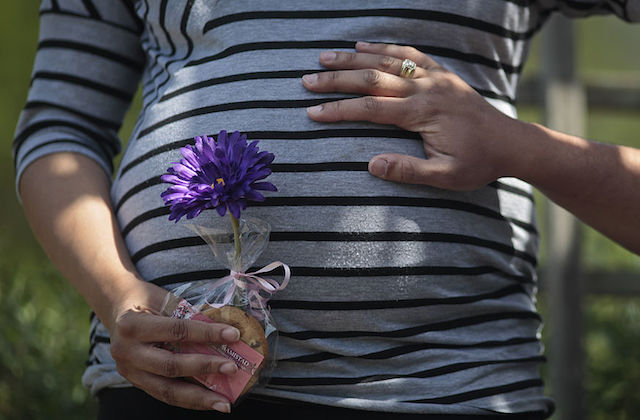While research shows that taking one tiny pill can reduce the chances of pregnant people developing preeclampsia, which is potentially fatal for them and fetuses, many people do not know they should take it.
Taking one low-dose aspirin daily lowers the chances of developing preeclampsia by 24 percent. Preeclampsia occurs when a pregnant person’s blood vessels constrict, preventing blood from flowing to the kidneys, brain or uterus. It is the leading cause of the high maternal mortality rate in the United States and, as Colorlines has previously reported, Black people in the U.S. are about three times more likely to die from childbirth than their White counterparts.
Black Americans are also more likely than Whites to develop—and die from—preeclampsia. Risk factors include being over 35, being African American, being pregnant for the first time, being obese, having diabetes or hypertension, and carryings twins or triplets, reports NPR.
"What aspirin does is relax blood vessels, [which] lowers the blood pressure, but also improves blood flow to the baby, to the kidneys, and to the brain, lowering the chance that the woman would have any complications to her pregnancy that would affect either her or her baby," says Dr. Jodi Abbott, an ob-gyn at Boston Medical Center.
It is not a secret that aspirin can cut the risk of preeclampsia; both the American College of Obstetricians and Gynecologists and the U.S. Preventive Services Task Force recommend it. Yet many pregnant people—including those most at risk—do not know it could help them, according to NPR. For this reason, programs like Boston Medical Center's Prenatal Aspirin Project are working let pregnant people know that low-dose aspirin is an important tool.
"Everybody deserves a healthy baby and a healthy mother, and we're failing at that right now,” Abbott said in an interview with NPR. “This is really an opportunity for all women—but especially for women of color—to be able to claim back some power over their ability to have healthy pregnancies and healthy children.”
